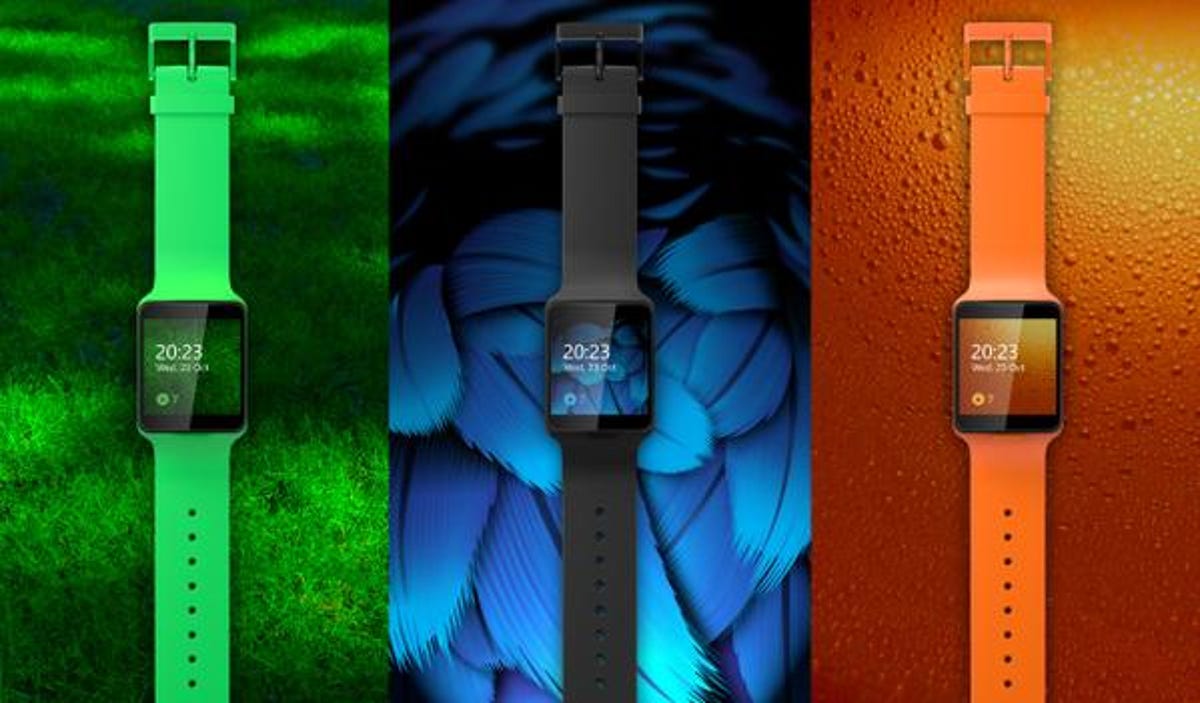
Evan Blass
Once upon a time, another company was dreaming up smartwatch ideas, only to have Microsoft dash its plans, according to a new report.
Images of an unannounced smartwatch were discovered on Friday by tech-leak-finder and technology journalist Evan Blass. The images, which were on a Tumblr blog operated by Microsoft designer Pei-Chi Hsieh, showed what Blass says is the “Moonraker” smartwatch. No specs were shown on the site, but Hsieh’s Tumblr blog, which has since been taken down, provided a slew of photos of the smartwatch — which would have competed with the likes of Apple Watch — with different colored bands. The images appear to be for marketing use and would have accompanied an unveiling.
If Nokia had launched Moonraker, the Windows Phone-based smartwatch would have joined a scrum of contenders including devices from Motorola, Samsung, LG, Pebble, and eventually Apple. To date, smartwatches of all stripes have added up to only modest sales — 4.6 million units shipped for all of 2014, according to market researcher Strategy Analytics — and given the tepid reception for Windows Phone smartphones, it’s unlikely Moonraker would have moved the needle much. (Spurred by the arrival of the Apple Watch in April of this year, Strategy Analytics forecasts smartwatch shipments of 28.1 million for 2015.)
The discovery of the Moonraker garners more questions than answers. Since only images were discovered, it’s unknown for sure whether the device is something Microsoft is working on or is in fact a product that the software giant killed off.
According to Blass, the device is known as the Microsoft Moonraker. However, The Verge is reporting on Friday, citing unnamed sources, that the device was actually developed by Nokia and was set to be unveiled by that company at Mobile World Congress in 2014. Microsoft, however, stepped in and scuttled the idea to make room for its Band wearable, the report claims.
Microsoft officially acquired Nokia’s Devices and Services business in April 2014 for $7.2 billion. The tie-up gave Microsoft a device-maker that it could use to build out its Windows Phone platform, and helped Nokia offload a mobile phone business that was on the downswing. Microsoft has since ditched the Nokia branding, but continues to sell devices developed by the company. Nokia is now focused on networking and mapping, though some reports have suggested it may have plans to get back into hardware at some point in the future.
The Verge’s sources’ accounts seems plausible. At the time of Mobile World Congress in February last year, Microsoft was just a couple of months away from officially acquiring Nokia and likely had a roadmap for its plans with the mobile firm. If Microsoft didn’t want to launch a smartwatch at that time, it’s possible the company could have suggested Nokia not make the move, despite not technically owning it.
Microsoft might not have wanted another device to step on its toes. The company in October launched the Microsoft Band, a wearable that acts as a fitness tracker, but also displays time. The Band, which retails for $199, has been generally well-received, and works with Windows Phone, iOS and Android devices via Bluetooth. Though the devices are different, Microsoft was concerned that Moonraker would compete with the Band, according to The Verge’s sources.
Still, the Moonraker images show what might have been. The device comes with a rectangular design and appears to run on Microsoft’s Windows Phone operating system. No internal specs were shared.
Both Nokia and Microsoft declined comment on the report.



